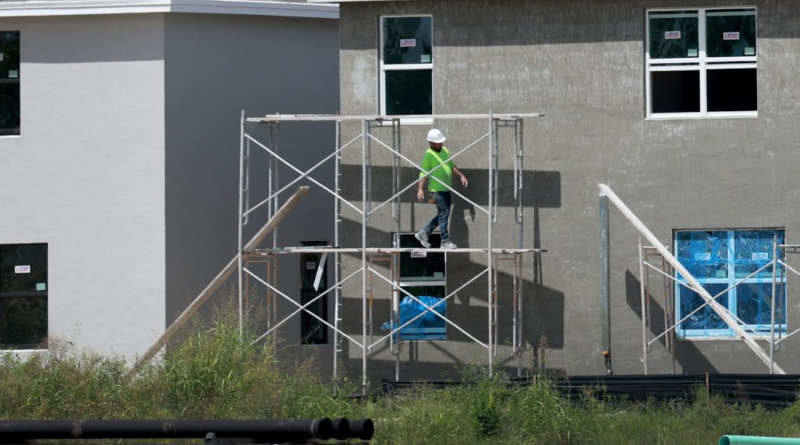‘A glaring blind spot’ in housing affordability: Mortgage underwriting and home appraisals should account for energy costs. Here’s why
For generations, homeownership has been a fundamental component of the American Dream. It’s a symbol of prosperity, a catalyst for upward mobility, and the hope to provide your children and their children the opportunities that may not have been afforded to you.
Everyone who owns a home understands the sacrifices made and the hard-earned dollars saved to finally purchase a place to call your own. Ensuring home affordability is crucial to protecting the American Dream, but as homeowners know firsthand, the monthly mortgage payment is just one part of the cost of owning a home. In recent years, many families are struggling with the cost of energy, forcing homeowners to make tough decisions to make ends meet.
A home is only affordable once all the monthly costs (mortgage, electricity, utilities, maintenance, etc.) are fully accounted for. However, many potential homebuyers don’t take electricity costs into consideration when thinking about one of the biggest purchases they’ll ever make. One unseen cost contributor is the estimated 40% of a building’s energy lost to air leaks when a home is not properly insulated and air-sealed. It’s a very solvable problem with innovative building materials, such as spray foam insulation that can strengthen a home’s building envelope filling the gaps and spaces within a home’s walls and attic. By making certain the energy you use to heat or cool your home is maximized, lowering your utility costs because air is no longer escaping.
Unfortunately, the home buying process, specifically mortgage underwriting, does not account for energy efficiency when appraising and assessing a home’s true value and cost. If we’re serious about building a more sustainable future, homeowners should have energy efficiency numbers and information made available before buying a house so they are making the right decisions for them and their families.
Some new homes have an Energy Rating Index, such as HERS, which can be a valuable selling point provided by sellers to buyers. However, most homes do not have an ERI score, and sellers cannot provide either quantitative or qualitative information on energy efficiency to the buyer.
Additionally, the mortgage underwriting process does not factor in energy costs when computing monthly mortgage payments to qualify borrowers. This is a glaring blind spot when it comes to buying a home.
Including expected energy costs for borrowers in underwriting would bring more price transparency to the process of choosing and buying a home. It will incentivize homebuilders to work with energy-efficient building materials knowing that consumers will now know how much they can expect to pay in energy bills.
Homebuyers, with a greater understanding of energy costs, will naturally gravitate towards more efficient homes, which will also reduce energy demands and related emissions—a win for homeowners and the environment.
In fact, this idea has been proposed in Congress. Known as the Sensible Accounting to Value Energy (SAVE) Act, it has garnered bipartisan support in the past, and now more than ever, is a bill that should be considered.
Until the underwriting process changes to better account for energy costs, curious builders and contractors can turn to the Institute for the Building Envelope, a trade association made up of industry leaders whose mission is to spread awareness of innovative and efficiency-boosting building materials, as a resource.
Our country’s home affordability and energy challenges need solutions. Rarely is there an opportunity to address two pressing issues at the same time, but right now we have the answer right in front of us: It’s time to bring greater transparency to the true costs associated with homeownership by accounting for energy efficiency in the mortgage underwriting and home appraisal process. In doing so, we can build a more sustainable future that helps keep the American Dream alive today and for generations to come.
Ian Hughes is VP of environmental and government affairs for Meritage Homes and a member of the Board of Directors for the Institute for the Building Envelope.
More must-read commentary published by Fortune:
The opinions expressed in Fortune.com commentary pieces are solely the views of their authors and do not necessarily reflect the opinions and beliefs of Fortune.




